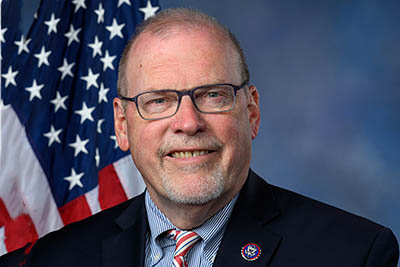Government Bureaucrat’s Royalties

While I travel throughout Virginia’s Ninth Congressional District, one of the opportunities afforded to me is visiting our local schools.
The Ninth District is big, comprised of twenty-eight cities and counties.
It is home to more than sixty high schools.
School visits allow me to talk directly with students and listen to their questions and feedback.
Recent school visits included several in Wise and Buchanan.
One student was interested to hear about the influence of stock ownership on Members of Congress and conflicts of interest.
Shortly after entering Congress, I sold my entire stock portfolio.
As I have often joked, I don’t know what my wife did with the $6,000. The money is gone and so is any conflict.
While this isn’t the course of action that every Member needs to take, I decided that the best course of action for me was to sell.
In recent years, Members from both sides of the aisle have faced pressure to sell their stocks or place them in a blind trust.
I would like to see this same pressure applied to government bureaucrats and regulators.
That is why I introduced the Royalty Transparency Act, a bill that requires an officer or employee in the executive branch of the U.S. Government to file financial disclosure reports and report royalty payments that they receive.
This legislation will empower Congressional oversight efforts of the financial disclosure filing system for executive branch employees.
U.S. Senator Rand Paul (R-KY) has introduced a Senate companion bill.
One of the reasons for this bill is that it requires researchers in the National Institutes of Health (NIH) and other agencies to disclose royalties they receive.
An article from Reason Magazine cites that some working at NIH over the last decade earned an estimated $400 million in royalties from third-party companies for medical treatments and innovations they have helped produce.
However, information pertaining to how much the agency’s employees were paid, who they were being paid by, or what they were being paid for has been concealed from the public.
This raises the question whether the agency and/or employees place a greater interest on profiting off of innovative medicines rather than studying and analyzing these treatments for the benefit of American science and patient health.
Last summer, NIH selected Dr. Jeanne Marrazzo to serve as the new director for the National Institute of Allergy and Infectious Diseases (NIAID).
This position had to be filled due to the retirement of NIAID’s well-known former director, Dr. Anthony Fauci.
Dr. Fauci’s career in government spans back to the ’60s, when he joined NIAID as a clinical associate in 1968.
Dr. Fauci worked fifty-four years at the agency. In 1984, he became the director of NIAID, serving in that role until his retirement in December of 2022.
A whopping thirty-eight years as head of one of our leading institutions, an institution which gives out thousands of grants! In a recent transcribed interview, Dr. Fauci told us he could not keep track of all the grants and had other people to do that.
Of note, Ecohealth Alliance subawarded $598,500 in NIH grant funds to the Wuhan Institute of Virology during 2014-2019 for bat coronavirus research.
I believe the COVID-19 virus originated from bat research at Wuhan’s Institute of Virology.
From 2019-2022, Dr. Fauci made headlines for various things. One of those storylines highlighted his salary, as he earned the title of highest-paid federal government employee. In 2022, he received $481,000, more than the president of the U.S. who receives $400,000.
Also Dr. Fauci is set to receive the largest federal retirement package in history, with a reported first-year pension payout of $414,000.
Additionally, Dr. Fauci and his wife, Dr. Christine Grady, saw their net worth increase from around $7.6 million in 2019 to $11.5 million in late 2022.
This net worth increase can be attributed in part to gifts and royalties.
Such gifts and royalties raise eyebrows.
I am not saying he did anything illegal or unethical, but as a public servant, there should be transparency regarding the money you receive directly or indirectly from government service.
I am committed to transparency and bringing potential conflicts of interest of executive branch bureaucrats and regulators to light.
At a time when Americans are losing faith and trust in their institutions, we need more sunlight on why some of our public servants are receiving large amounts of compensation.
I am trying to fix that problem with the Royalty Transparency Act.
If you have questions, concerns, or comments, feel free to contact my office. You can call my Abingdon office at 276-525-1405 or my Christiansburg office at 540-381-5671. To reach my office via email, please visit my website at https://morgangriffith.house.gov.








